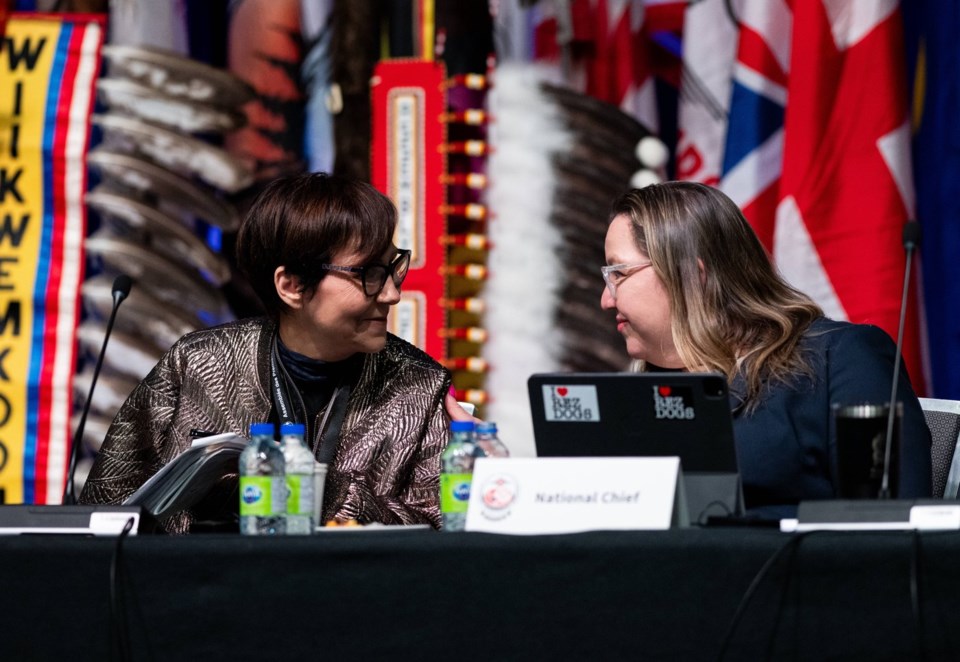OTTAWA — The federal government has told the Canadian Human Rights Tribunal that negotiations with the Assembly of First Nations on reforming the child welfare system are stalled and the AFN's requests are "unreasonable."
In a May 15 filing to the tribunal, Ottawa said it has made "intensive and meaningful efforts" to reform the system since 2016 — when the tribunal concluded that the federal government had discriminated against First Nations children by underfunding the on-reserve child welfare system.
But Ottawa told the tribunal that negotiations with the AFN are "no longer working" and there is no "practical utility" to continuing them.
"Canada has met its obligations under the Tribunal’s consultation orders, which do not require that Canada consult indefinitely or until the complainants obtain the variable outcomes they seek," the filing says.
Cindy Blackstock, who heads the First Nations Child and Family Caring Society and helped to launch the initial human rights complaint against the federal government, said she is "disappointed" by the filing.
"It read like a government that did not want to take responsibility for the way it's harming children and is trying to blame everyone else," she said Tuesday.
"And it's out of alignment with what Prime Minister (Mark) Carney promised during the campaign, which is to come back to the table in good faith and stop Canada's discrimination, and prevent it from happening again to kids."
Indigenous Services Canada did not immediately respond when asked why the federal government didn't alert First Nations leaders that it was looking to suspend the talks.
Chiefs have twice voted down a federal proposal to reform the child welfare system, saying it didn't go far enough to protect kids from discrimination.
Ottawa said that deal, worth $47.8 billion, went beyond the scope of what was ordered by the tribunal. It accuses the AFN and the First Nations Child and Family Caring Society of making "extensive further demands."
Chiefs in Ontario, frustrated with other regions voting down the agreement, reached a deal of their own with the federal government earlier this year.
In the filing, Ottawa said that instead of continuing with "unproductive consultations," it's in the best interests of First Nations children "to move forward with implementing long-term reforms, beginning with (Chiefs of Ontario) and (Nishnawbe Aski Nation's) joint motion to approve the Ontario final agreement."
The federal government also claims that the First Nations Child and Family Caring Society imposed "unreasonable conditions on the negotiations" and encouraged First Nations leaders to vote the deal down.
"The Caring Society publicly criticized the very reforms to which it had previously agreed, advocating in favour of their new approach to reform," the government said in the filing.
"Rather than moving forward to long-term reform, the Caring Society’s approach has brought progress to an impasse due to their fluctuating demands and unwillingness to compromise."
Blackstock said the Caring Society has been consistent in its position for more than a year and that if better information comes along, it might change.
Asked about the claim that she encouraged leaders to vote down the deal, Blackstock said she did her due diligence by analyzing the offer, as did the chiefs.
Blackstock didn't rule out heading back to court.
"If they don't sit down in good faith as the prime minister promised, and if they don't commit themselves to getting an agreement that stops their discrimination and prevents it from happening again, then yes, it's going back to court," she said.
"We've been there over 30 times, and the kids keep winning because the facts are so strong against Canada."
This report by The Canadian Press was first published May 20, 2025.
Alessia Passafiume, The Canadian Press




